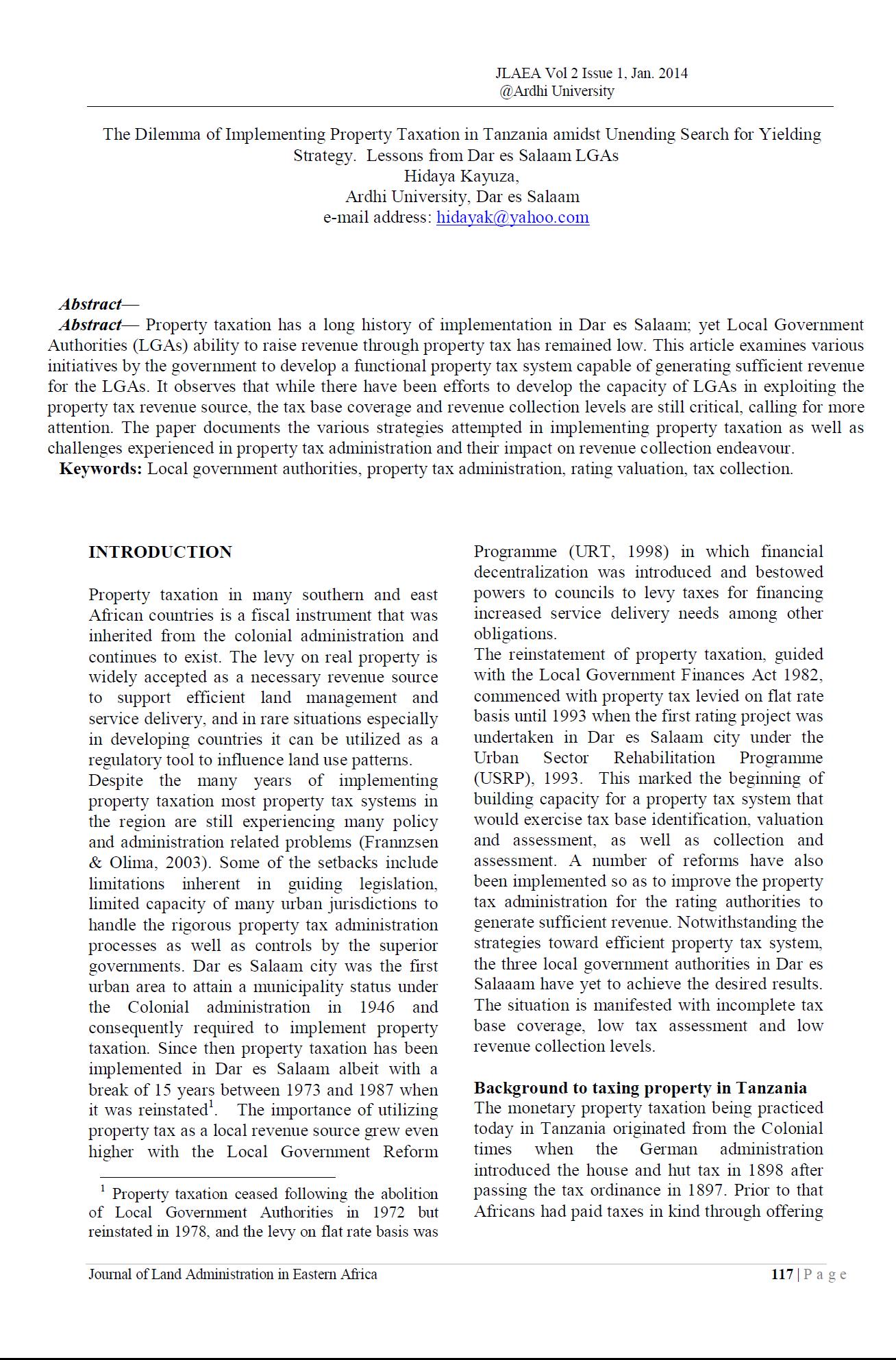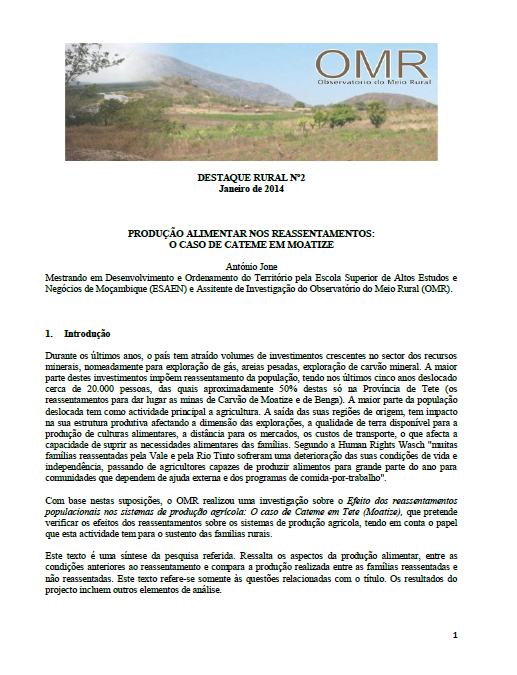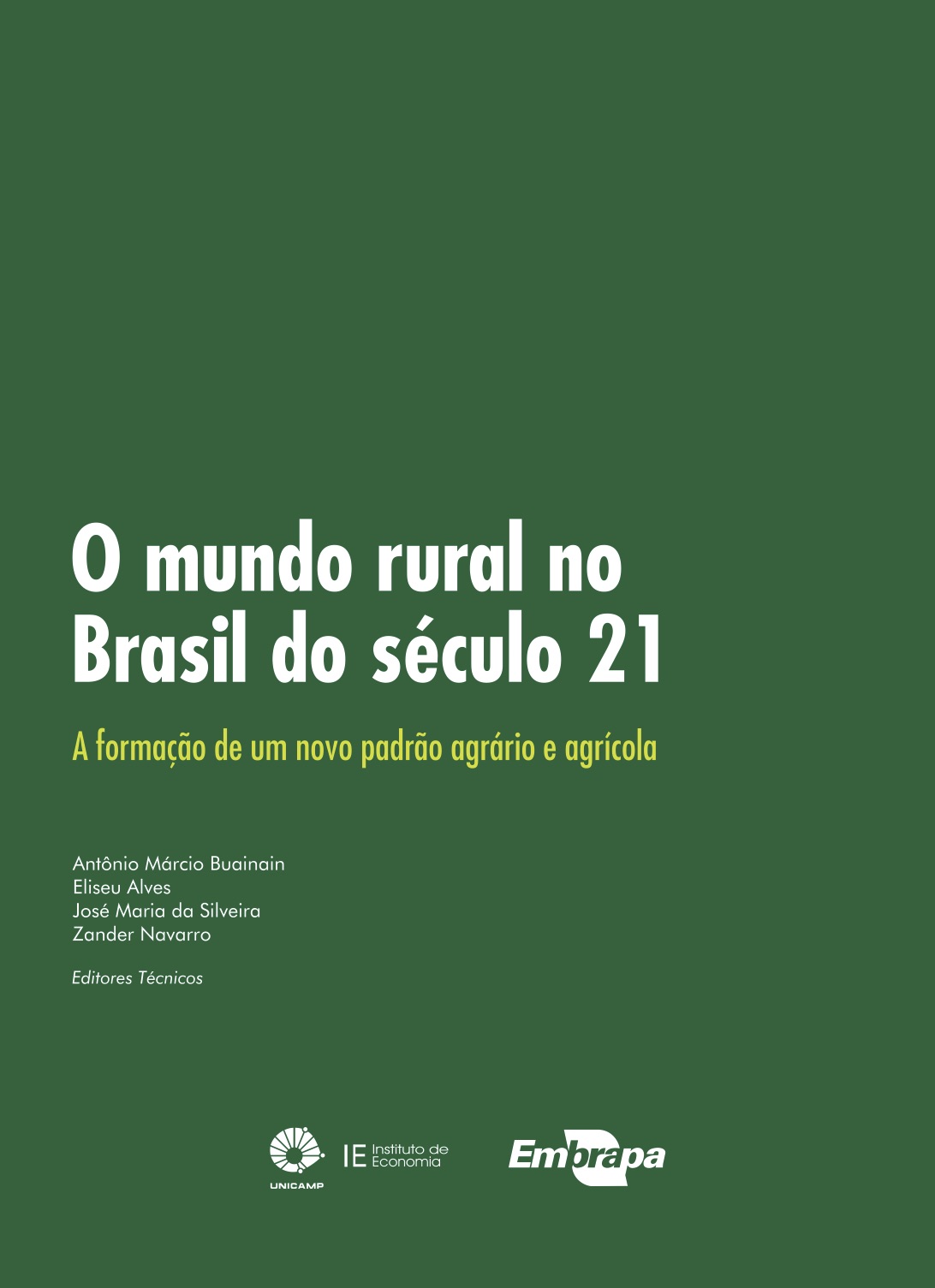The Dilemma of Implementing Property Taxation in Tanzania amidst Unending Search for Yielding Strategy.
Property taxation has a long history of implementation in Dar es Salaam; yet Local Government Authorities (LGAs) ability to raise revenue through property tax has remained low. This article examines various initiatives by the government to develop a functional property tax system capable of generating sufficient revenue for the LGAs. It observes that while there have been efforts to develop the capacity of LGAs in exploiting the property tax revenue source, the tax base coverage and revenue collection levels are still critical, calling for more attention.







